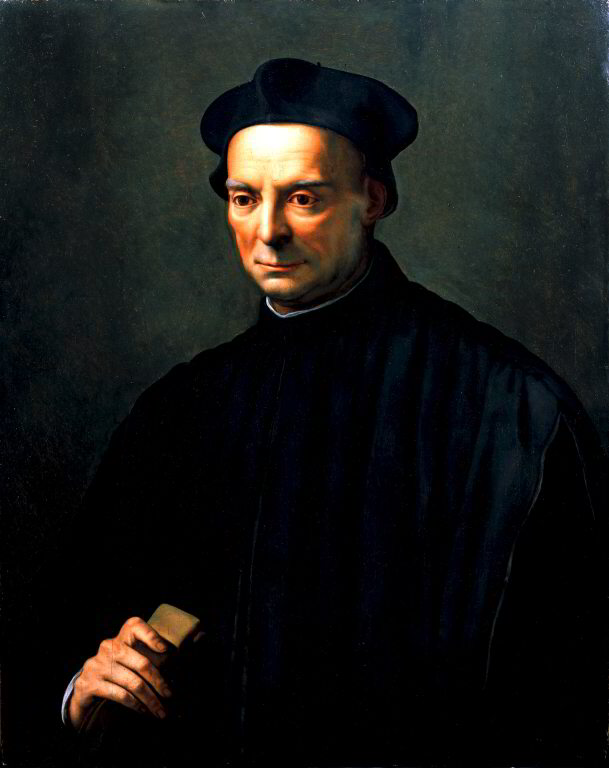Niccolo Machiavelli najznámejšie citáty
Niccolo Machiavelli Citáty o ľuďoch
„…v ľude je tým menej zbožnosti, čím bližšie k sídlu rímskej cirkvi býva.
Kniha I, Kapitola 12“
Potvrdené výroky, Vladár
Niccolo Machiavelli Citáty o zlu
Niccolo Machiavelli citáty a výroky
„Vladárovi nikdy nechýba legitímny dôvod na to, aby porušil svoj sľub.
Kapitola 18“
Potvrdené výroky, Vladár
„A preto všetci ozbrojení proroci zvíťazili a všetci neozbrojení proroci boli zničení.
Kapitola 6“
Potvrdené výroky, Vladár
„V politice, kde není odvolávacího soudu, soudí člověk podle výsledku.“
Varianta: V politike, kde nie je odvolávací súd, súdi človek podľa výsledku.
Niccolo Machiavelli: Citáty v angličtine
“A prince never lacks legitimate reasons to break his promise.”
Zdroj: The Prince (1513), Ch. 18
Zdroj: The Prince (1513), Ch. 19; Variant: Against foreign powers, a prince can defend himself with good weapons and good friends; if he has good weapons, he will never lack for good friends. (as translated by RM Adams)
“Among other evils which being unarmed brings you, it causes you to be despised.”
Zdroj: The Prince (1513), Ch. 14; translated by W. K. Marriot
Varianta: Variant translation: The first method for estimating the intelligence of a ruler is to look at the men he has around him.
Zdroj: The Prince (1513), Ch. 22; translated by W. K. Marriot
Varianta: A man who strives after goodness in all his acts is sure to come to ruin, since there are so many men who are not good.
Zdroj: The Prince (1513), Ch. 15; translated by W. K. Marriot
“In the land of the blind the one-eyed man is king.”
In terra di ciechi chi vi ha un occhio è signore.
Act III, scene ix
The Mandrake (1524)
“War is just when it is necessary; arms are permissible when there is no hope except in arms.”
This is a quotation of Titus Livius IX:1 iustum enim est bellum quibus necessarium, et pia arma ubi nulla in armis spes est) that Machiavelli uses in Ch. 24 of Discourses on Livy; Machiavelli similarly writes that "The justice of the cause is conspicuous; for that war is just which is necessary, and those arms are sacred from which we derive our only hope." (The Prince, Ch. 26)
Misattributed
“One must never forget to look at the aim of a matter.”
El fine si ha a riguardare in tutte le cose.
Act III, scene xi
The Mandrake (1524)
Zdroj: The Prince (1513), Ch. 3; Variant translation: Never do any enemy a small injury for they are like a snake which is half beaten and it will strike back the first chance it gets.
Varianta: There can be no proper relation between one who is armed and one who is not. Nor it is reasonable to expect that one who is armed will voluntarily obey one who is not.
Zdroj: The Prince (1513), Ch. 14; translated by W. K. Marriot
“No circumstance is ever so desperate that one cannot nurture some spark of hope.”
Non è mai alcuna cosa sì disperata, che non vi sia qualche via da poterne sperare.
Act I, scene i
The Mandrake (1524)
Book 1, Ch. 53 (as translated by LJ Walker and B Crick)
Discourses on Livy (1517)
A cognoscer bene la natura de' popoli bisogna esser Principe, ed a cognoscer bene quella de' Principi conviene essere popolare.
Dedication
The Prince (1513)
Book 1, Ch. 6 (as translated by LJ Walker and B Crick)
Discourses on Livy (1517)
Book 1, Ch. 37 Variant: Nature has so contrived that to men, though all things are objects of desire, not all things are attainable; so that desire always exceeds the power of attainment, with the result that men are ill-content with what they possess and their present state brings them little satisfaction. Hence arise the vicissitudes of their fortune. (as translated by LJ Walker and B Crick)
Discourses on Livy (1517)
Book 2, Ch. 3 (translation by Mansfield and Tarcov)
Discourses on Livy (1517)
“That which is good for the enemy harms you, and that which is good for you harms the enemy.”
Quello che giova al nimico nuoce a te, e quel che giova a te nuoce al nimico.
Rule 1 from Machiavelli's Lord Fabrizio Colonna: libro settimo (Book 7) http://babel.hathitrust.org/cgi/pt?id=njp.32101013672561;view=1up;seq=176 (Modern Italian uses nemico instead of nimico.)
The Art of War (1520)
“A prince who is not wise himself will never take good advice.”
Varianta: Variant translation: A prince who is not wise himself cannot be wisely counseled.
Zdroj: The Prince (1513), Ch. 23; translated by W. K. Marriot
http://www.friesian.com/econ.htm
“He who believes that new benefits will cause great personages to forget old injuries is deceived.”
Zdroj: The Prince (1513), Ch. 7; translated by W. K. Marriott
From an undated letter to Piero Soderini (translated here by Dr. Arthur Livingston), in The Living Thoughts of Machiavelli, by Count Carlo Sforza, published by Cassell, London (1942), p. 85
Book 2, Ch. 29 (as translated by LJ Walker and B Crick)
Discourses on Livy (1517)
